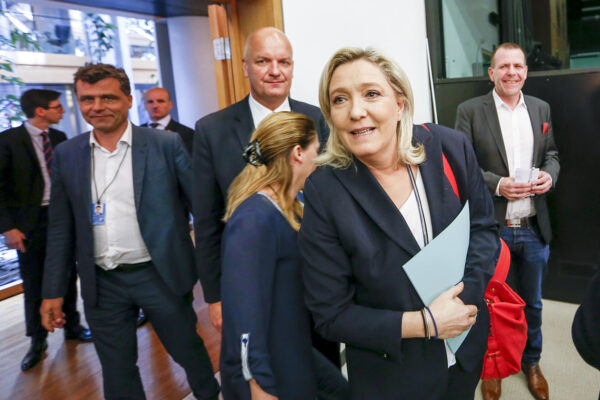
Politico reports that a long-simmering dispute between the two most prominent women of the French far right is getting out of hand.
There is even a risk of a split in the Front national, the website argues: between the faction of leader Marine Le Pen and the socially conservative wing that has rallied around her 26 year-old niece, Marion Maréchal-Le Pen.
The fact that it’s a family feud, in which the Le Pen patriarch and Vichy apologist Jean-Marie inevitably resurfaces, makes this a headline-grabbing story.
But there are deeper, geographical and political divides at play that have less to do with personality.
The Fillon threat
Currently at issue are abortion rights and the French 35-hour workweek. Marine is in favor of both; Marion isn’t happy about either.
The center-right candidacy of François Fillon, a social conservative who calls for far-reaching liberal economic reform, has made the two issues more pertinent.
Polls suggest Fillon would qualify for the second voting round in the presidential election next year and handedly defeat Marine.
The question for the Front national, as Politico notes, is whether to attack Fillon from the left or the right?
The people around Marine argue for the former. They portray Fillon as a cold-hearted Thatcherite, dispatched by the European Commission to destroy the French welfare state.
Marion and the people around her argue for the latter. They want to outflank Fillon and his Republicans from the right.
That is also the line of Marion’s grandfather, Jean-Marie, who was formally expelled from the party by his daughter Marine in 2015 for describing gas chambers as a “detail” of World War II history.
North versus south
The Front used to be more right-wing in its economic and social policies. While Jean-Marie was its leader, the party championed liberalization of the economy and respect for traditional Catholic values.
That was never a hugely popular combination. Support for the far right was mostly confined to World War II collaborationists and white colonialists who had been forced to flee Algeria in 1962, when President Charles de Gaulle ended in the Independence War. Both groups lived predominantly in Provence-Alpes-Côte d’Azur, the region north of the French Riviera.
When Marine took over as leader in 2011, she shifted the party’s economic policy in a more populist direction, opposing, for example, free trade and privatization.
This has proved popular across the deindustrializing north of France. Support from the region helped Marine win 6.4 million votes in the 2012 presidential election, or 18 percent nationwide — a record for the party.
Marine also deemphasized social issues, going so far as to refuse to play a major role in the campaign against marriage equality in 2013, despite polls showing nearly half the country was opposed at the time. Marion did oppose gay rights and relations between the two Le Pens went south from there.
Standing out
What has held the northern and southern wings of the party together is a shared opposition to European integration, including the euro, immigration and what it calls the “Islamization” of France.
Now that those views are becoming more mainstream, the economic and social issues that divide Marine’s base in the north from Marion’s in the south threaten to unravel the Front national‘s coalition.
Fillon is mildly Euroskeptic. Both the center-left Socialist Party and the center-right Republicans have adopted a harder line on immigration and integration policy. Fillon warns against “Islamic totalitarianism” and argues there is a “problem” in Islam. Manuel Valls, the Socialist prime minister, believes Islam “has found its place in the republic,” but that France must still prove the religion is “compatible with democracy.” France has banned the burqa. Several cities and towns imposed similar bans on the “burkini” swimsuit this year, before the supreme court overruled them.
There is still room for a nationalist party that claims to speak for traditional France, but if that’s the party the Front wants to be, it needs to decide at some point what exactly “traditional” means.
